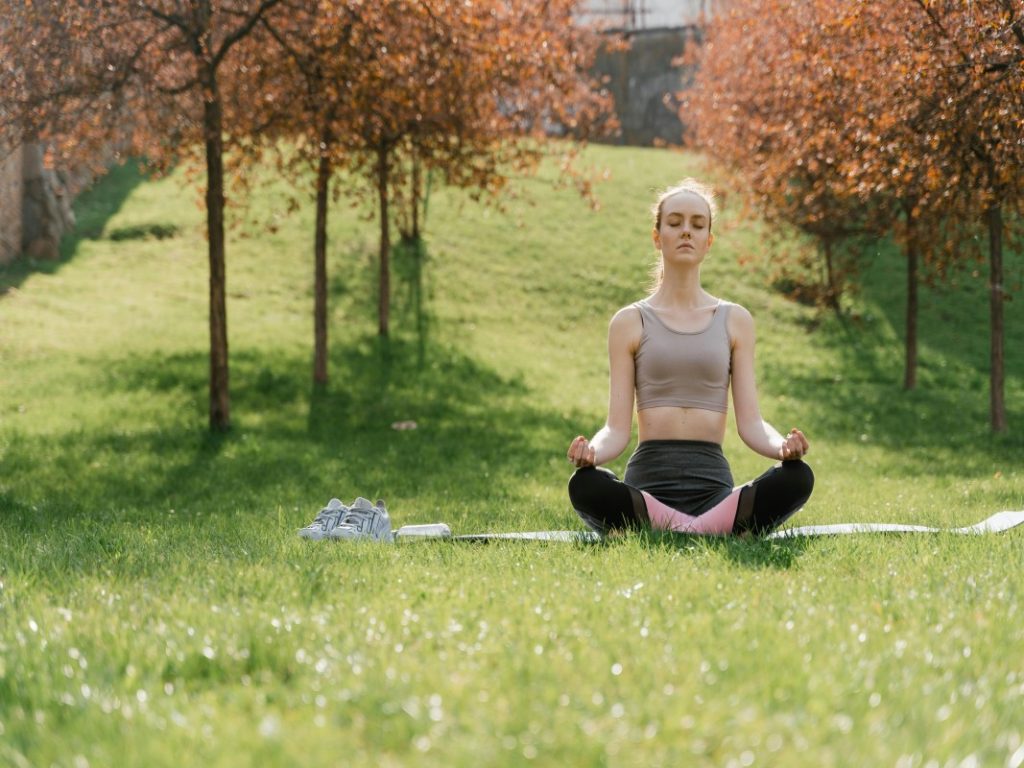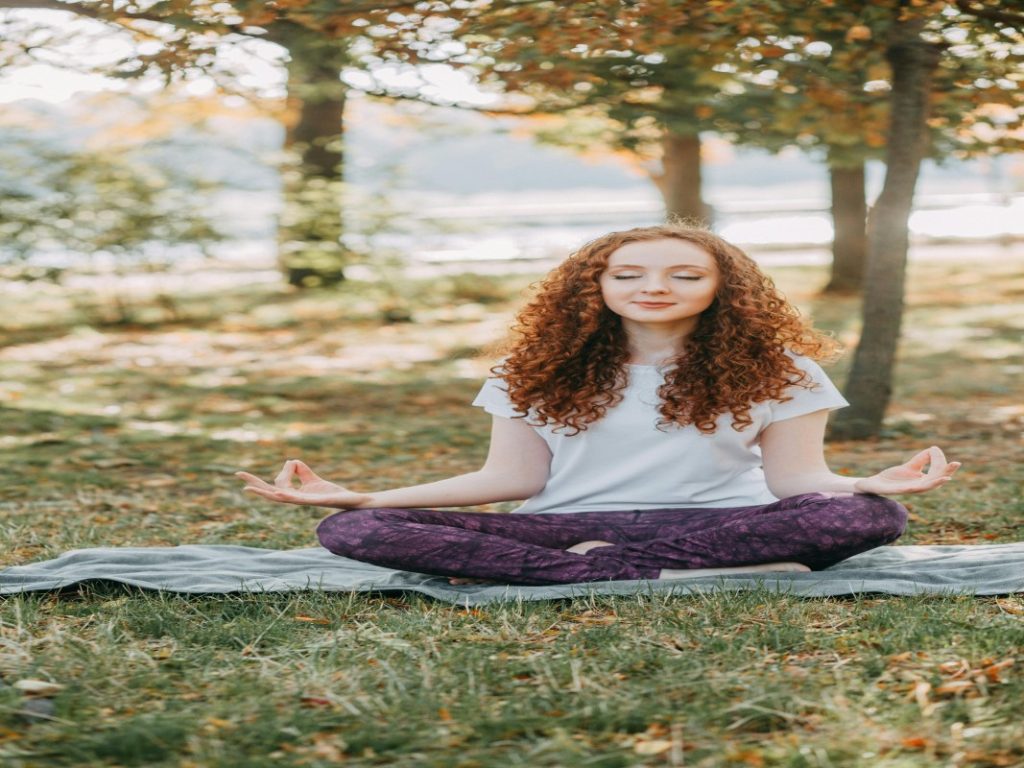If you’ve been feeling stressed, disconnected, or just in need of a reset, a meditation retreat can be the perfect opportunity to recharge, reflect, and deepen your mindfulness practice. Whether you’re a seasoned meditator or new to the practice, a retreat offers a unique chance to disconnect from the outside world and connect with yourself in a peaceful, nurturing environment.
However, with so many different retreats available, choosing the right one can feel overwhelming. The type of retreat, location, and style of meditation can all vary widely. To help you make an informed decision, here’s a guide to the key factors to consider when choosing a meditation retreat that best aligns with your goals and needs.
1. Define Your Goals for the Retreat

Before you begin researching retreats, it’s important to get clear on your personal goals. Why do you want to go on a meditation retreat? Are you looking to:
- Relax and recharge: If you’re feeling burned out or overwhelmed, you may want to look for a retreat focused on relaxation and stress reduction, with an emphasis on restorative practices like yoga or guided meditation.
- Deepen your meditation practice: For those already familiar with meditation, a retreat that offers in-depth teachings on specific meditation techniques (such as Vipassana or Zen meditation) might be ideal.
- Spiritual growth: If your retreat goals are more spiritually focused, you may want to choose a retreat that integrates mindfulness meditation with teachings on philosophy or spiritual traditions (e.g., Buddhism, Taoism, or other contemplative practices).
- Detox or digital detox: Many retreats offer “digital detoxes,” where participants are encouraged to leave behind their phones and computers for a period of time to fully immerse themselves in the experience.
By clearly defining what you hope to achieve, you can narrow down your options and select a retreat that best fits your needs.
2. Research the Retreat’s Style and Structure
Meditation retreats come in all shapes and sizes, and their format can vary significantly. Consider the style and structure of the retreat, as it will influence your experience. Here are some important factors to consider:
1. Length of the Retreat
Meditation retreats can range from a weekend to several weeks or even months. Think about how much time you can realistically dedicate. Some people benefit from a longer retreat to truly unplug and reset, while others may prefer a shorter, weekend-based experience.
- Weekend retreats: A weekend retreat may be perfect if you have limited time or want to dip your toes into meditation before committing to a longer stay.
- Week-long retreats: These can offer a deeper immersion into meditation practice and are common for retreats that teach specific techniques, like Vipassana or silent meditation.
- Extended retreats: Longer retreats are often more intense and offer a more immersive experience. These are typically better suited for experienced meditators who want to deepen their practice and have more flexibility with their schedule.

2. Meditation Techniques and Practices
There are many different styles of meditation, and each retreat will offer a specific technique or combination of practices. Consider what type of meditation resonates most with you or what you’d like to explore:
- Vipassana: A form of insight meditation that focuses on mindfulness of breath and sensations. Vipassana retreats are often silent and can be rigorous.
- Zen meditation (Zazen): This style focuses on seated meditation, with an emphasis on stillness, mindfulness, and awareness in the present moment.
- Guided meditation: Some retreats offer guided sessions with teachers who provide instruction, helping you focus on relaxation, visualization, or self-awareness.
- Yoga and meditation: Many retreats combine meditation with yoga practices, providing a holistic approach to mindfulness and physical well-being.
- Silent retreats: These retreats, often lasting several days, focus on total silence, encouraging deep introspection and mindfulness.
Make sure to choose a retreat that aligns with your meditation interests and goals.
3. Consider the Location and Setting
The environment where the retreat takes place plays a crucial role in your overall experience. The location should feel safe, comfortable, and conducive to meditation. Here’s what to think about:
1. Natural Surroundings
Many meditation retreats are held in beautiful, tranquil settings, such as mountains, forests, or by the sea. Nature is inherently calming, and being surrounded by natural beauty can enhance your experience.
- Secluded locations: Remote retreats can provide the perfect space for deep introspection without distractions from the outside world.
- Accessible locations: If you’re not ready to travel too far, look for retreats within driving distance or in your local area. A peaceful setting close to home can still provide a powerful experience.
2. Retreat Accommodations
Consider what kind of accommodations you would be comfortable with. Some retreats offer basic, dorm-style rooms, while others may have more luxurious settings. The goal is to find a place where you can feel comfortable enough to fully immerse yourself in the retreat experience, without distractions from your environment.
- Simple, minimalist accommodations: Many retreats offer basic rooms to help you focus on meditation rather than the comforts of luxury. This can be a great option for those looking to challenge themselves or who prefer simplicity.
- Comfortable, private accommodations: If you prefer more privacy or a comfortable space to rest, look for retreats that offer private rooms or boutique-style accommodations.
4. Check the Credentials of the Teachers
The quality of the teaching staff can significantly affect your retreat experience. A retreat is often an opportunity to deepen your practice and learn new techniques, so it’s important that you trust and feel comfortable with the teachers.
- Experienced teachers: Check the credentials of the teachers leading the retreat. Many retreats feature well-known meditation instructors with years of experience in their practice.
- Teaching philosophy: If you are drawn to a specific style of meditation, make sure the teacher aligns with that approach and can offer clear, helpful guidance.
- Reviews and testimonials: Research reviews and testimonials from past retreat participants to gauge the effectiveness and teaching style of the instructors.

5. Understand the Cost and Inclusions
Meditation retreats can vary widely in cost, depending on the location, length, and level of accommodations. Some retreats are quite affordable, especially those run by nonprofit organizations or meditation centers, while others can be more expensive, especially if they include luxury accommodations and meals.
- Retreat fees: Be sure to check what’s included in the cost—some retreats cover all meals and accommodations, while others may have additional fees for meals, transportation, or specific activities.
- Sliding scale or donation-based retreats: Many retreats, particularly those run by meditation centers or spiritual organizations, offer sliding-scale fees or even donation-based pricing. If cost is a concern, look for these options.
6. Know the Retreat’s Rules and Expectations
Each retreat has its own set of rules and expectations, which can range from dietary restrictions to silence during certain periods. Make sure you’re clear on the retreat’s rules before committing:
- Dietary restrictions: Some retreats offer vegetarian or vegan meals, while others may have specific dietary practices (such as fasting) that are part of the experience.
- Silent periods: Many retreats include silent periods, during which participants are expected not to talk to one another. This can be a powerful practice for introspection but may require some adjustment.
- Physical activity levels: Some retreats include physical activities like yoga, walking meditation, or even hiking, while others may be more focused on seated meditation.
Conclusion
Choosing the right meditation retreat is a deeply personal decision that depends on your goals, preferences, and what you’re hoping to achieve. Whether you’re seeking relaxation, spiritual growth, or a deeper connection to your meditation practice, taking the time to research and consider all factors—such as location, teachers, techniques, and accommodations—will help you find the retreat that’s perfect for you.
A meditation retreat can be a transformative experience, offering you the space and support to deepen your mindfulness practice and reconnect with yourself. With the right retreat, you can return home feeling refreshed, centered, and ready to face the world with a calmer, more grounded perspective.

